
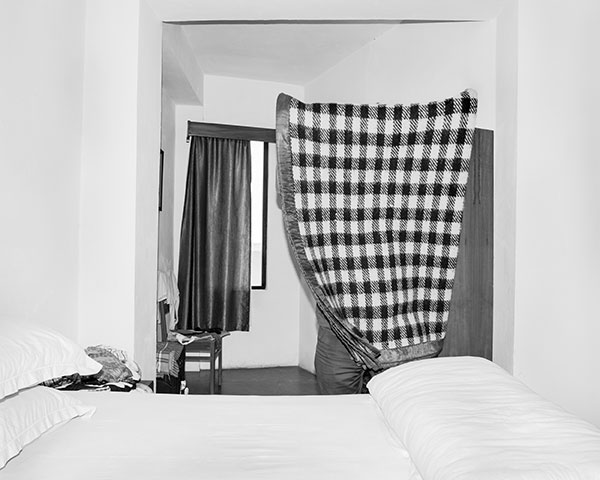
Photograph © Tenzing Dakpa
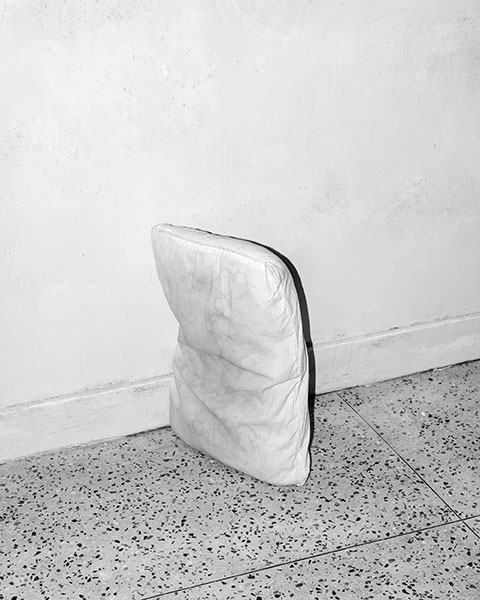
Photograph © Tenzing Dakpa
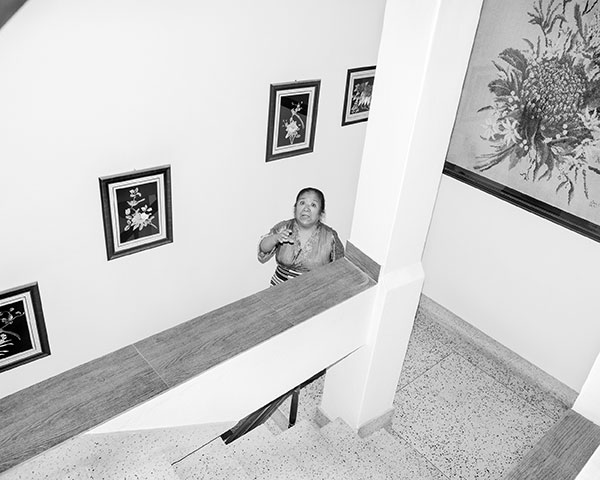
Photograph © Tenzing Dakpa
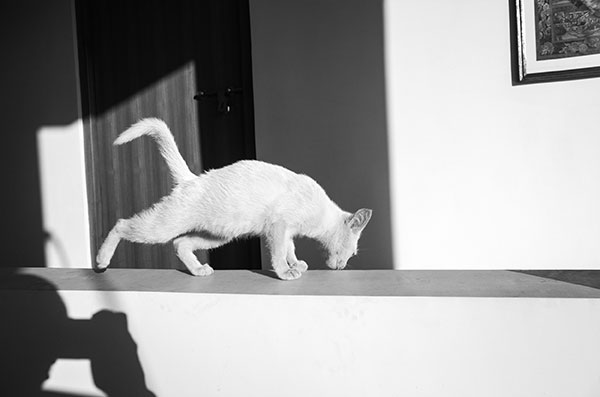
Photograph © Tenzing Dakpa
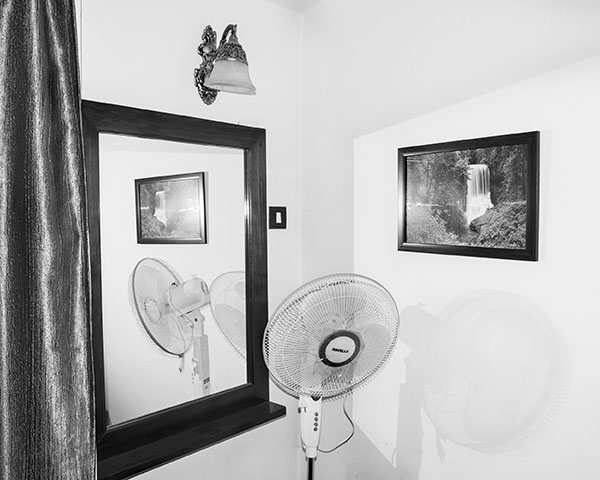
Photograph © Tenzing Dakpa
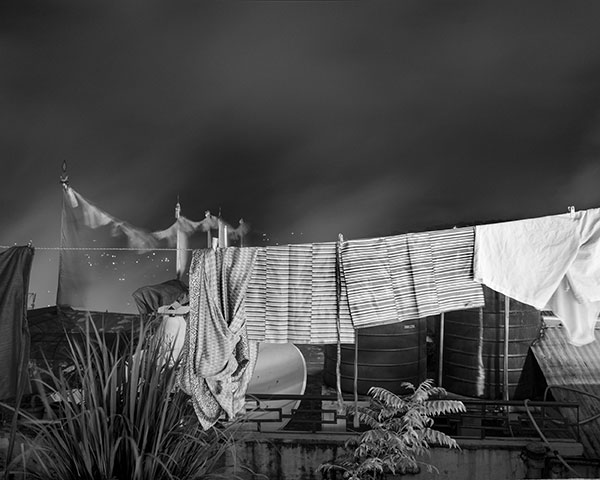
Photograph © Tenzing Dakpa
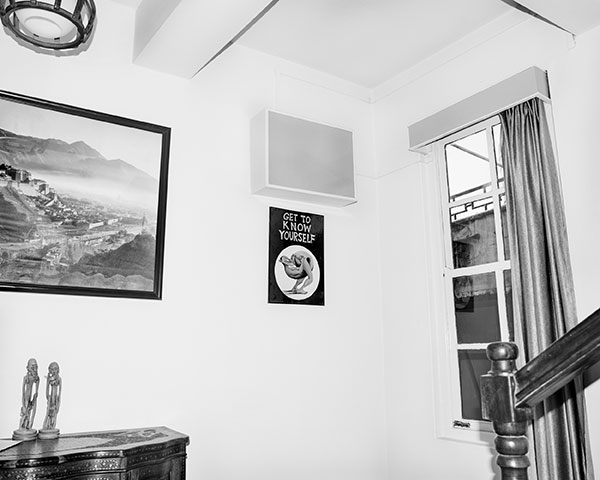
Photograph © Tenzing Dakpa
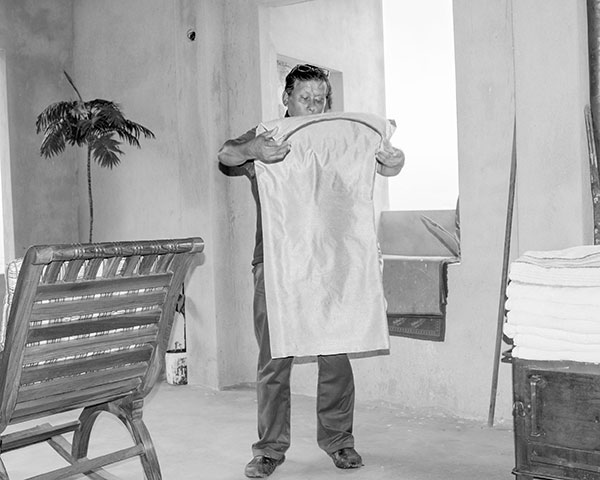
Photograph © Tenzing Dakpa
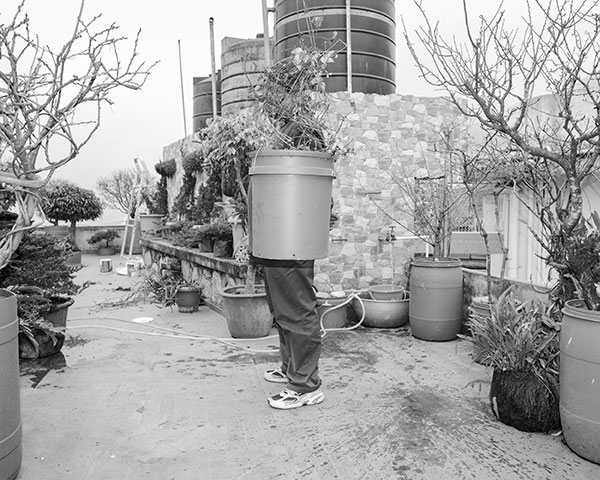
Photograph © Tenzing Dakpa
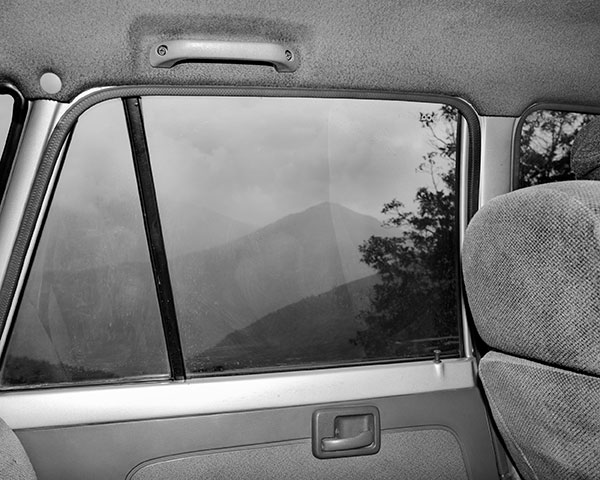
Photograph © Tenzing Dakpa
The Hotel encapsulates and conveys the unique space of Dakpa's home – his cat's meanderings, the building's interiors, his family's daily labor, and their relationships with each other. Overall, these images capture a site where various social experiences manifest. The hotel's built-structure is imagined as a container of experiences, where there is an interplay between its perception as a transient space for guests, and actual memories of the family's migration, identity, and hopes.
While a hotel, by itself, may be associated with a sense of anonymity and temporariness, in this case it is also a home. Dakpa connects these ostensibly contrasting ideas at play in his family's hotel to describe his own migration away from home. As the only family member not involved in running the hotel, he negotiates feelings of detachment when he visits – it is at once a home as well as a place of impermanence.
Complicating this is also the desire to know his family, which is a primary instigator for this exploration of home. At a certain level, photography's development continues to be propelled by a desire to confer immortality by reproducing the subject, and yet it paradoxically ends up capturing unfulfilled desires – to fully know the subject and ourselves. This tension is palpable in the series, as it captures and reconstructs home.
-----
At the time of our 1:1 Interview with Tenzing, he was asked these questions about The Hotel.
PSA: In The Hotel work, you have made the images using the snapshot aesthetic. Could you please elaborate on this choice?
TD: The way to access the hotel and my family photographically came from a pre-existing set of images of my cat, Dungkhar, which I had made over one summer (2014), before moving to RISD. I couldn't necessarily make the cat sit in one place or the other, so the process was just me following him around, or the scene presenting itself within the premises of my home. So a camera in hand always was an efficient way to go about it.
PSA: What was it like to photograph your own family and how collaborative was the process?
TD: Initially, when I started making the photographs, my father was apprehensive and asked what was I doing. I didn't have a straight answer, but I responded by saying, "I don't know who you really are," and through photographs I want to explore this idea of home, labor and migration, which were some of the realities I was preoccupied with. For me, it was a way to enter into a photographic realm and see where that led to.
They settled into the fact that I was there to make photographs and just let me be. It was the first time that I was following them around with a camera, and I think I actually became nonexistent. They were supportive of what I was doing, and there were instances where they would perform for the camera - especially my brother.
When I was in the process of making the photographs, this feeling came upon me, which was that my education in photography had found a home. Each of us, we were doing what we knew best. They flew to Providence for my thesis show. My parents couldn't stop laughing at each other, commenting on how they look in the photographs. It's mostly because they are so aware of their roles, how they operate, and the demands of the labor that goes into the hotel.
PSA: You have mentioned elsewhere, "I have found myself more rooted now in my upbringing after making The Hotel." Can you elaborate?
TD: Having realized an opportunity to photograph my family at work was to embrace and acknowledge the history of the diaspora and its manifestation and to be able to make the work in the most idiosyncratic and personal yet ambiguous way possible; I think the photographs reflected my upbringing, where very little communication happens yet stuff is just happening and things are being repaired, maintained and cared for. I can identify with that.
20 November